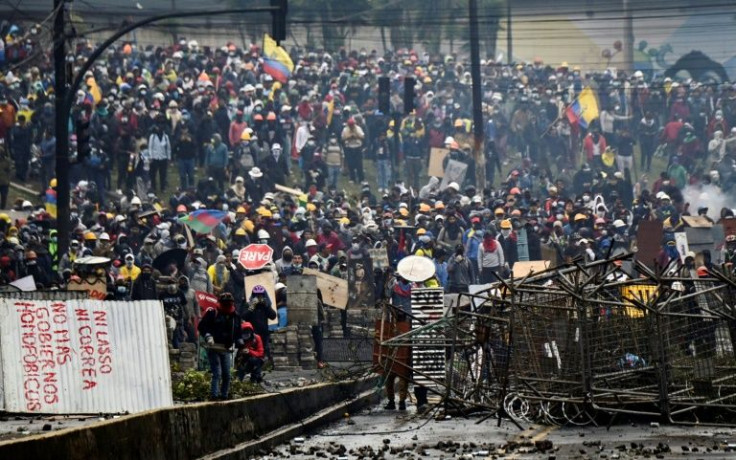Inflation Is Beginning To Show Its Ugly Side

Inflation is beginning to show its ugly side, polarizing political systems and fueling strikes and protests that disrupt economic activity. It's happening in France and the UK and will occur across every country highly dependent on food and energy imports -- the two drivers of today's inflation surge.
Inflation, the sustained rise of the prices of everyday items, has two sides -- the bad and the ugly. The bad side is mainly about economics. It's crushing family budgets, making it hard for low- and middle-income families to afford to put food on the table, gas in the car, and live in a comfortable place.
In addition, the bad side of inflation is about slower economic growth -- even a recession -- as higher spending on essential products leaves minimal funds for discretionary items. For instance, the US GDP growth declined by 1.6% in the first quarter of 2022. That's primarily due to a shortfall in consumer spending, as inflation runs at multi-year high no matter how it is measured.
The ugly side of inflation is social and political unrest. It polarizes political systems and pushes societies into chaos, as high inflation turns slow economic growth into outright recessions and even depressions, throwing people out of work. Germany's economy back in the 1920s experienced among the worst hyperinflation periods the world has ever seen, and the political and social unrest that followed attests to the dangers.
Hopefully, Germany and the world will never again experience such catastrophic inflation. But there are the inflationary episodes of the 1970s and 1980s, which could be repeated nowadays, and push several economies into social and political unrest.
Emerging and frontier market economies that are heavily dependent on food and energy imports are the top candidates for such episodes, like Sri Lanka, which is on the verge of collapse. And Turkey, where inflation officially runs at 73.5%, close to four times higher than a year ago, while its economy barely grows.
Then there are European economies, which depend heavily on Russian gas and other materials to fill their energy needs, with some European countries already seeing the ugly side of inflation. For instance, in an election held early this month in France, citizens disserted Macron's parties for the left and right-wing parties.
“Populism is returning to Europe, together with those who believe that they can seize the opportunity to fight capitalism and the “system,” from the left and the right-wing sides of the political spectrum,” Athens-based political analyst Gregory Nikitas told the International Business Times.
And there's the UK, a country with one of the highest inflation rates in Europe, paralyzed by its rail system's most significant strike over better pay in the last 30 years.
The list goes on with strikes by port workers in Germany over better pay, truckers and cabin crew in Spain, and public transport workers in Italy and Greece.
And that's just the beginning.
© Copyright IBTimes 2025. All rights reserved.






















